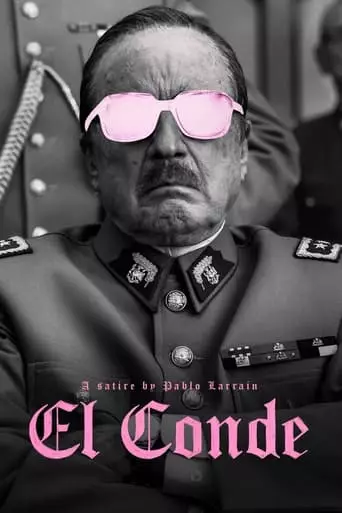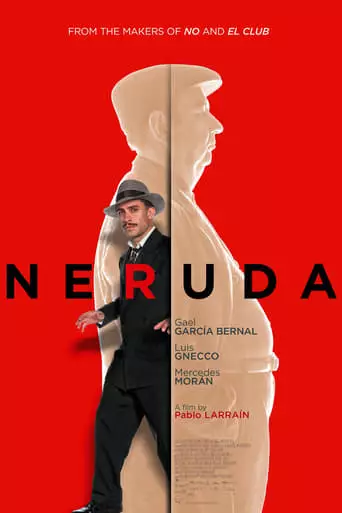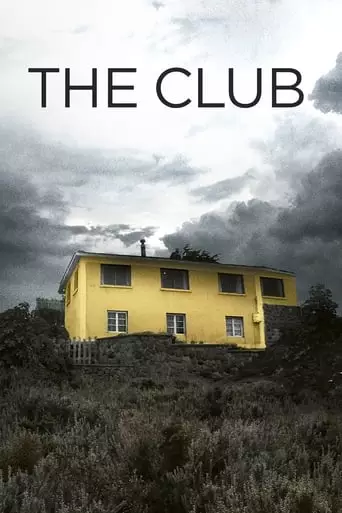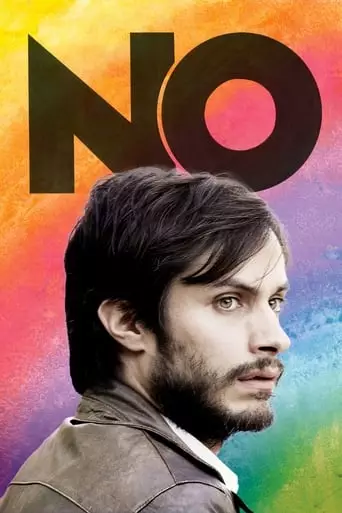After living for over two centuries, Augusto Pinochet is a vampire ready to die… but the vultures around him won’t let him go without one last bite. El Conde (2023), […]

After living for over two centuries, Augusto Pinochet is a vampire ready to die… but the vultures around him won’t let him go without one last bite. El Conde (2023), […]

It’s 1948 and the Cold War has arrived in Chile. In the Congress, prominent Communist Senator and popular poet Pablo Neruda accuses the government of betraying the Party and is […]

An account of the days of First Lady, Jacqueline Kennedy, in the immediate aftermath of John F. Kennedy’s assassination in 1963. Jackie (2016), directed by Pablo Larraín, is a biographical […]

In a secluded house in a small seaside town live four unrelated men and the woman who tends to the house and their needs. All former priests, they have been […]

In 1988, Chilean military dictator Augusto Pinochet, due to international pressure, is forced to call a plebiscite on his presidency. The country will vote ‘Yes’ or ‘No’ to Pinochet extending […]
Pablo Larraín: The Master of Political and Psychological Cinema
Pablo Larraín is a Chilean filmmaker celebrated for his ability to intertwine political commentary with deeply personal storytelling. Known for critically acclaimed films such as No (2012), Jackie (2016), and Spencer (2021), Larraín’s work explores themes of power, identity, and human resilience. His unique approach to filmmaking, characterized by bold visuals and emotionally charged narratives, has made him one of the most influential directors of his generation.
Early Life and Career Beginnings
Pablo Larraín was born on August 19, 1976, in Santiago, Chile, into a politically active family. His father, Hernán Larraín, is a prominent politician, and his mother, Magdalena Matte, served as a government minister. Growing up during the tumultuous years of Chile’s dictatorship under Augusto Pinochet profoundly shaped Larraín’s worldview and later influenced his filmmaking.
Larraín co-founded the production company Fábula in 2003, which has since become a hub for innovative and socially conscious cinema. His directorial debut, Fuga (2006), a psychological drama set in the world of classical music, hinted at his interest in exploring complex characters and moral ambiguity.
The Pinochet Trilogy: Tony Manero, Post Mortem, and No
Larraín gained international recognition with his “Pinochet Trilogy,” a trio of films examining life under and after Chile’s military dictatorship.
Tony Manero (2008) follows a sociopathic man obsessed with John Travolta’s character in Saturday Night Fever, set against the backdrop of Pinochet’s brutal regime. The film’s stark portrayal of moral decay and societal fragmentation earned critical acclaim.
Post Mortem (2010) delves into the days surrounding the 1973 military coup, focusing on a morgue worker caught in the chaos. The film’s slow, unsettling pace and haunting imagery reflect the suffocating atmosphere of the era.
No (2012), the final installment, is a gripping drama about the 1988 referendum that led to Pinochet’s removal from power. Starring Gael García Bernal, the film was shot using U-matic video cameras to mimic the aesthetic of 1980s television ads. No was nominated for the Academy Award for Best Foreign Language Film, marking a breakthrough for Larraín on the global stage.
Hollywood Success: Jackie and Spencer
Larraín’s first English-language film, Jackie (2016), is a biographical drama about Jacqueline Kennedy in the days following the assassination of President John F. Kennedy. Starring Natalie Portman in a career-defining performance, the film eschews traditional biopic conventions, focusing instead on Jackie’s internal struggle to preserve her husband’s legacy while grappling with her own grief. The film earned multiple Academy Award nominations, including one for Portman’s performance.
In Spencer (2021), Larraín offered a similarly unconventional portrayal of Princess Diana, played by Kristen Stewart. Set during a fictionalized Christmas weekend, the film explores Diana’s psychological turmoil as she contemplates leaving the British royal family. With its dreamlike atmosphere and Stewart’s critically acclaimed performance, Spencer reaffirmed Larraín’s ability to reimagine historical figures through a deeply personal lens.
Exploring Identity and Power: Neruda and Ema
Larraín’s fascination with identity and power is evident in films like Neruda (2016) and Ema (2019).
Neruda is a playful and poetic exploration of the life of Chilean poet and politician Pablo Neruda, blending fact and fiction to examine the interplay between art and politics.
Ema is a bold, visually stunning drama about a reggaeton dancer navigating love, motherhood, and rebellion. The film’s vibrant energy and experimental narrative marked a departure from Larraín’s more somber works, showcasing his versatility as a filmmaker.
Themes and Style
Pablo Larraín’s films are characterized by their innovative narratives, striking visuals, and deep psychological insight. He often explores themes of power, memory, and the intersection of personal and political identities. His protagonists are frequently caught in moments of crisis, grappling with the weight of history and their own inner conflicts.
Visually, Larraín employs unconventional techniques to immerse audiences in his characters’ worlds. From the grainy, retro aesthetic of No to the ethereal, dreamlike quality of Spencer, his films are as visually distinctive as they are emotionally resonant.
Legacy and Influence
Pablo Larraín has established himself as one of the most important filmmakers of his time, blending art and politics in ways that challenge and inspire. His ability to navigate between Chilean and international cinema has allowed him to bring uniquely Latin American stories to a global audience while reimagining iconic figures with fresh perspectives.
Through his work, Larraín has proven that cinema can be both a powerful tool for social commentary and an intimate exploration of the human condition. His films continue to push boundaries, offering audiences new ways to engage with history, identity, and the complexities of life.
Conclusion
Pablo Larraín’s career is a testament to the transformative power of storytelling. From his incisive critiques of Chile’s political history to his haunting portrayals of global icons, Larraín has created a body of work that resonates deeply with audiences worldwide. As he continues to innovate and explore, Larraín remains a vital voice in contemporary cinema, reminding us of the enduring power of film to reflect and reshape our understanding of the world.